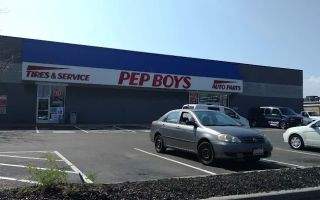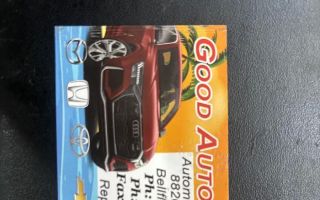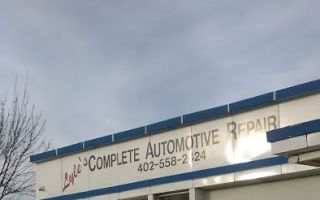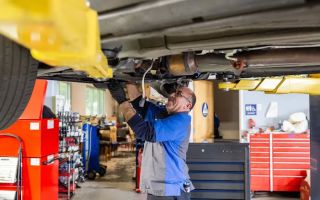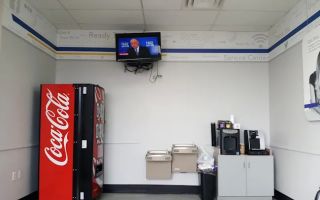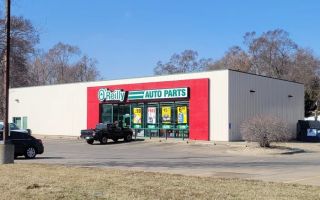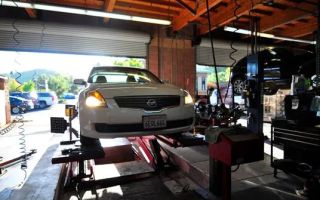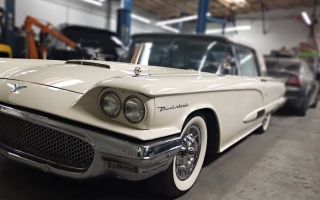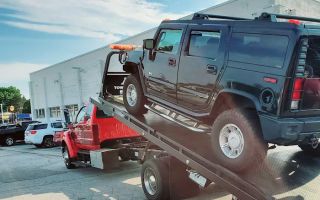Efficient Solutions for Handling Engine Problems in Your Car
We’ve all been there—driving along, enjoying the smooth ride, and then suddenly, your car starts making strange noises, or even worse, it just stalls. Engine issues can range from simple annoyances to complete breakdowns, and knowing how to handle them efficiently is a skill that every car owner should develop. Over the years, I’ve faced my fair share of engine-related problems, and I’ve learned firsthand the importance of staying calm, understanding the issue, and taking the right steps to resolve it quickly. In this article, I’m going to walk you through some practical steps for diagnosing and fixing engine issues, all based on my personal experiences and expert advice.
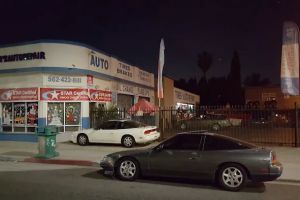
Walter's Auto Repair
5508 Atlantic Ave, Long Beach, CA 90805, USA
Understanding Common Engine Problems
Before you can handle engine issues effectively, it’s essential to understand the most common problems that can occur. Engine failures can be intimidating, but not every issue requires a costly repair or towing service. Many issues are fixable with some basic knowledge and the right tools. Here are a few of the most common engine problems I’ve encountered:
- Overheating: This is a problem that’s easy to spot. If your car’s temperature gauge rises above normal, or if you start noticing steam coming from the hood, overheating could be the culprit. The cause could be anything from low coolant levels to a malfunctioning thermostat.
- Strange Noises: If your engine is making knocking, ticking, or rattling sounds, it’s a sign that something isn’t quite right. These noises could indicate a variety of issues, including a lack of oil, loose components, or worn-out engine parts.
- Stalling or Poor Acceleration: If your engine stalls unexpectedly or fails to accelerate smoothly, it might be due to fuel delivery issues, a clogged air filter, or problems with the spark plugs.
- Check Engine Light: This is perhaps the most common engine warning sign. While the check engine light can indicate numerous problems, it often points to issues with sensors, exhaust systems, or emission control components.
Steps to Take When You Experience Engine Trouble
When faced with engine issues, it’s easy to panic. However, the key to handling these problems efficiently lies in staying calm, assessing the situation, and taking systematic steps. Based on my experience, here’s how I typically handle engine problems:
- Stay Calm and Assess the Situation: The first thing I do when I notice something unusual is to pull over safely and turn off the engine. If the car is overheating or smoking, it’s important to let it cool down before opening the hood. Once it’s safe, I check for obvious issues like leaks or unusual sounds.
- Check Fluid Levels: Engine issues often stem from low or old fluids. One of the easiest things I do is check the oil and coolant levels. If either is low, I top it off and see if that resolves the issue. If not, I know I’ll need to look deeper into the problem.
- Look for Obvious Signs of Damage: If the car is making strange noises, I try to pinpoint the source. Sometimes, it’s a loose belt or a component that’s come loose. Other times, it could be a more serious issue, like a cracked engine block or damaged piston. If I find something major, I know it’s time to call a mechanic.
- Use Diagnostic Tools: On many occasions, I’ve used an OBD-II scanner to check the check engine light. These scanners can pinpoint error codes, which give valuable clues about what’s going wrong. While not every driver has access to one, I highly recommend investing in one if you plan to do your own troubleshooting.
- Call for Help: If I can’t resolve the issue myself or if it’s beyond my expertise, I call for professional help. This could mean calling a towing service to take the car to a mechanic or arranging for a mobile mechanic to come to me for on-site repairs.
Real-Life Experience: When My Car Overheated on a Long Trip
One of the most memorable engine issues I’ve encountered was during a long road trip across the country. I had just crossed into a remote area when my car started to overheat. The temperature gauge was climbing fast, and I knew I needed to act quickly to avoid permanent damage. Here’s how I handled it:
First, I pulled over to a safe area and turned off the engine to let it cool down. I opened the hood carefully and checked the coolant level. It was low, and I could tell the radiator cap wasn’t fully sealed. Fortunately, I had some coolant in my emergency kit, and after topping it off, I was able to get back on the road. However, I made sure to keep an eye on the temperature gauge for the rest of the trip.
Although I was able to resolve the problem on my own, I knew the issue was likely a sign of a bigger problem, like a slow leak in the cooling system. Once I got to my destination, I called a local mechanic to have it inspected. Sure enough, the mechanic found a small crack in the radiator, which was a relatively easy fix but could have been disastrous if left unchecked. This experience taught me the importance of staying calm and being prepared for engine issues, even on the go.
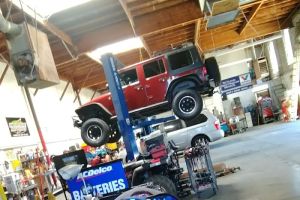
Nava Auto Repair
38950 30th St E C, Palmdale, CA 93550, USA
When to Call for Professional Help
Not all engine issues can be solved with basic troubleshooting. There are times when professional help is needed, especially if the problem is complex or potentially dangerous. Here are some signs that it’s time to call a mechanic or towing service:
- Engine Warning Lights: If your car’s check engine light is on and you can’t resolve the issue, it’s time to get professional diagnostics. A mechanic can read the error codes and determine the exact cause.
- Engine Overheating: If your car continues to overheat despite adding coolant or addressing the issue, it could be a sign of a serious cooling system failure. In this case, calling for a tow to a repair shop is the safest option.
- Unusual Noises: If you hear knocking, grinding, or any other abnormal sounds from your engine, it’s likely a sign of internal damage. It’s best to have a professional inspect the engine before further damage occurs.
- Complete Engine Failure: If your engine suddenly stops running and you can’t get it started again, it’s time to call for help. Trying to fix it yourself could lead to further damage.
Whether you need a tow or a professional mechanic, having a reliable towing service on standby can save you a lot of hassle and time. If you're ever in need of towing or on-site mechanic services, I highly recommend reaching out to Rescue & Towing, where you can get expert help when you need it most.

